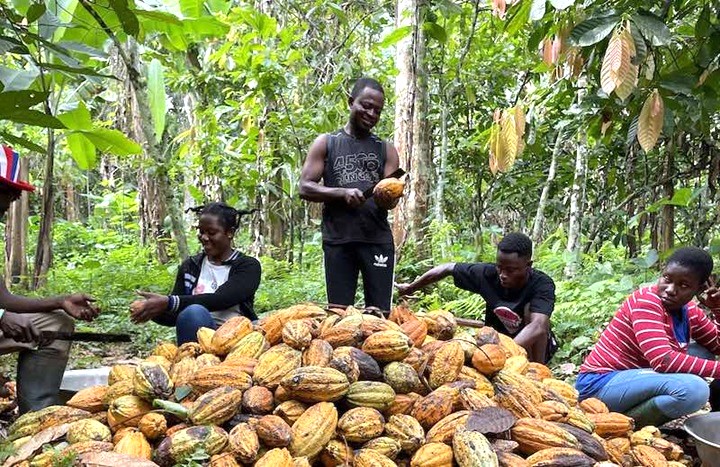Ghana Raises Cocoa Farmgate Price Again as New Crop Season Opens

Ghana, the world’s second-largest cocoa producer after Côte d’Ivoire, has announced another increase in the price paid to farmers for cocoa beans in the 2025/26 crop season, aiming to boost farmer incomes and strengthen production.
Finance Minister Cassiel Ato Forson said Thursday that, following consultations with stakeholders, the government had raised the farmgate price to 3,625 Ghanaian cedis ($289) per 64-kg bag, equivalent to 58,000 cedis per metric ton, effective Friday when the new season officially begins.
The new price represents a nearly 12% jump from the 3,228 cedis per bag (51,660 cedis per ton) announced in August, reflecting continued government efforts to cushion farmers against rising costs of living and global price fluctuations.
“Ghana Cocoa Board (COCOBOD) will continue to implement interventions to support cocoa production and improve the welfare of cocoa farmers,” Forson told reporters. He added that COCOBOD will intensify the supply of free fertilizers, insecticides, fungicides, spraying machines, and flowering inducers to sustain yields.
The move underscores Ghana’s commitment to safeguarding its nearly 800,000 cocoa farmers, who form the backbone of an industry that generates about $2 billion annually in export revenue and employs millions indirectly.
Global cocoa prices have surged over the past year on tight supplies, disease outbreaks, and climate-related disruptions in West Africa. Ghana’s decision to raise prices twice within months signals both the government’s recognition of farmer concerns and its need to maintain competitiveness with neighboring Côte d’Ivoire, which also adjusts prices to retain farmer loyalty and discourage cross-border smuggling of beans.
Analysts say the price hike could help improve farmer livelihoods and incentivize production, but warn that COCOBOD’s finances, already under strain from debt and high input subsidy costs—may face additional pressure.
The government has pledged that better management of resources, along with investments in productivity and disease control, will ensure long-term sustainability in the cocoa sector.
The 2025/26 crop season comes at a time when global demand for chocolate and cocoa-based products remains strong, positioning Ghana’s farmers to benefit if production targets are met.




